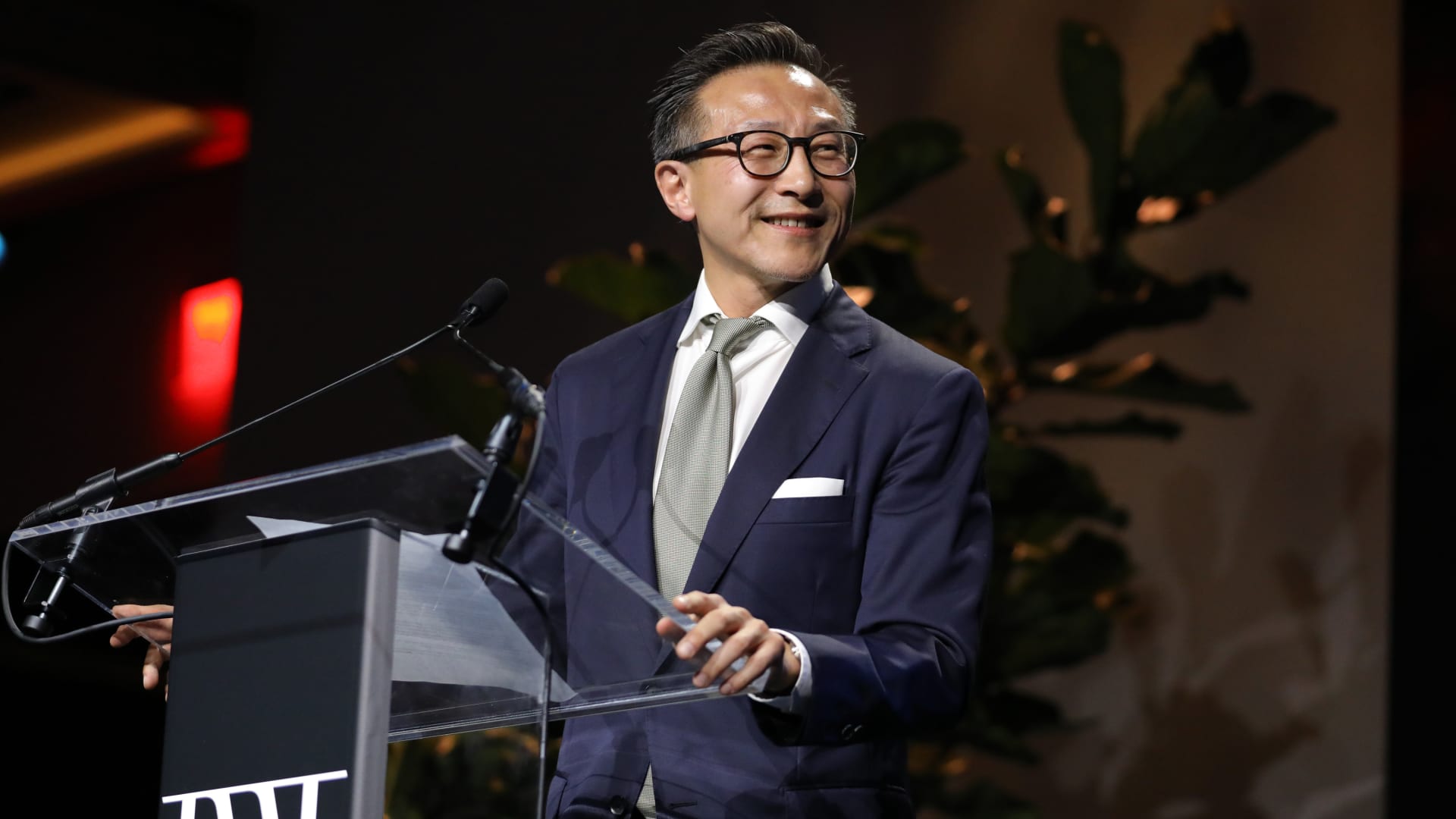Alibaba announced a major leadership reshuffle on Tuesday, with CEO and Chairman Daniel Zhang planning to step down this year and be replaced by veterans at the Chinese tech giant.
Eddie Yongming Wu will step in as CEO, while Joe Tsai will take over as chairman on Sept. 10.
The two executives are Alibaba veterans and close confidant of Alibaba’s billionaire founder Jack Ma.
But who are they exactly and what do their appointments signal about Alibaba’s future?
Eddie Wu, incoming CEO
Eddie Wu is one of the co-founders of Alibaba, who first served it as a technology director back in 1999. His experience is in the company’s core e-commerce business, monetization and technology, making him a well-rounded candidate to oversee the entire group.
After Alibaba decided to split into six units he was appointed as the chairman of the Taobao and Tmall Group — previously, the two units were the two biggest e-commerce services in China.
Wu has also been the chief technology officer of key businesses including Taobao and Alipay, the mobile payments service run by Alibaba affiliate Ant Group. He was in charge of Alibaba’s monetization platform on Taobao and Tmall, as well as directing efforts to push the Taobao mobile app that propelled the company into the smartphone era.
“Eddie Wu’s appointment as CEO shouldn’t come as a huge surprise. He co-founded Alibaba and played a key role on both the technology development and monetization of Taobao and Alipay,” Jacob Cooke, CEO of WPIC, an e-commerce tech and marketing firm that helps foreign brands sell in China, told CNBC.
“His elevation to CEO of the group is a natural transition and signals the unswerving importance of e-commerce in the company’s roadmap,” Cooke added.
Joe Tsai, incoming chairman
Another co-founder of Alibaba, Joe Tsai was appointed as the company chief financial officer until 2013 and currently serves as executive vice chairman. He is also the chairman of Alibaba’s logistics unit Cainiao, as well as a member of the Taobao and Tmall division.
Separate from his Alibaba activity, Tsai is also an owner of the Brooklyn Nets basketball team in the U.S. and is often seen as a more international-facing executive.
“The appointment of the internationally-focused Tsai as chairman aligns perfectly with the outward-looking strategy that Alibaba has recently adopted, with big investments in Lazada and the recently-announced plans to open a local version of Tmall in Europe,” Cooke said.
Lazada is the Singapore-headquartered e-commerce company owned by Alibaba, which has been key to its international expansion in south east Asia. Separately, Alibaba President Michael Evans last week said that the company would launch local versions of its Tmall e-commerce service in Europe.
Timing of changes
It has been a tumultuous two and a half years for Alibaba, starting with the suspension of Ant Group’s blockbuster initial public offering in November 2020 after failing to satisfy regulators.
The Chinese government tightened regulation on the domestic technology sector in areas from competition to data protection. Regulators hit Alibaba with a massive 18.23 billion yuan ($2.5 billion) antitrust fine in April 2021.
The company has been suffering from slowing growth because of a sluggish Chinese economy and rising competition from rivals such as JD.com and Pinduoduo. Its key cloud division, to which outgoing CEO Zhang will dedicate all his time, saw revenue decline in the March quarter.
Tsai and Wu will be looking to reinvigorate growth at the company amid what continues to be a difficult macroeconomic backdrop.
“I don’t think the reshuffling says too much about Alibaba’s business focus, nor do I believe it will have a significant impact on the company’s performance,” Xin Sun, senior lecturer in Chinese and East Asian business at King’s College London, told CNBC via email.
“After all, the most important factors behind the company’s performance are structural, such as the breakup of its ecosystem, the increasingly complex regulatory environment, and sharp competition from rivals. None of these have changed.”
